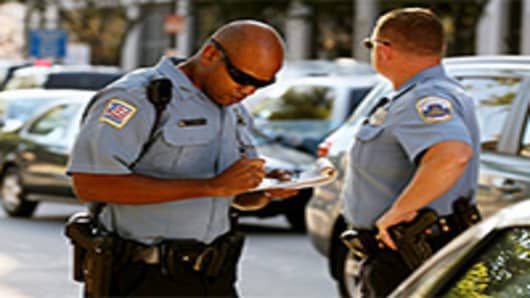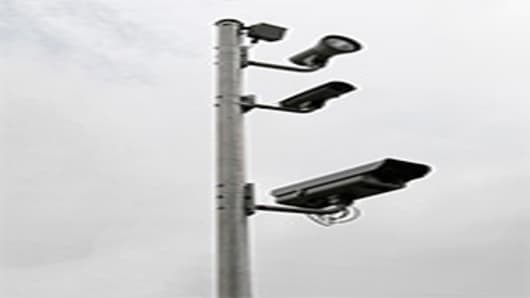Does automated enforcement work?
Red-light cameras cut fatal, red-light running crash rates by 24 percent in large cities, according to the Insurance Institute for Highway Safety, which represents automobile insurance companies. The cameras also reduced deadly crashes at intersections by 17 percent.
The Automobile Association of America says it supports the use of automated enforcement as part of a comprehensive traffic safety strategy.
“Unfortunately, we see some jurisdictions turn to automated enforcement with budgets and revenue in mind more than safety,” said AAA State Relations Director Justin McNaull in a statement to CNBC.com. “Successful programs must have adequate safeguards for motorists in place to ensure due process and fairness are respected and that safety is improved.”
Others are more skeptical of automated enforcement including cameras.
"This is one of the biggest scams being perpetrated on the public ever," says Jay Beeber, executive director of Safer Streets L.A., a non-partisan advocacy group that lobbies against red-light cameras in California.
Contesting red-light camera tickets
Contesting tickets from red-light cameras isn't easy. McNeill of New Jersey mailed in the death certificate to fight her ticket that's still pending.
But the odds of beating the ticket are against her. Just three percent of drivers contest a violation, according to New York City Department of Transportation spokesperson Nicholas Mosquera. Of those violations, 97 percent are upheld.
Mo matter the outcome, McNeill of New Jersey may have gotten off easy with her $50. Some penalties from red-light cameras can cost several hundred dollars.
And many drivers, who've been captured by a red-light camera, don't know they've violated a traffic rule—until they get a ticket in the mail.
More stories from Stephanie Landsman
Email us at SmallBiz@cnbc.com and follow us on Twitter@SmallBizCNBC.




